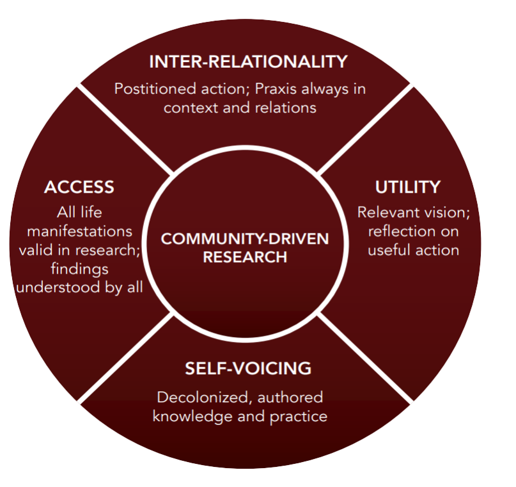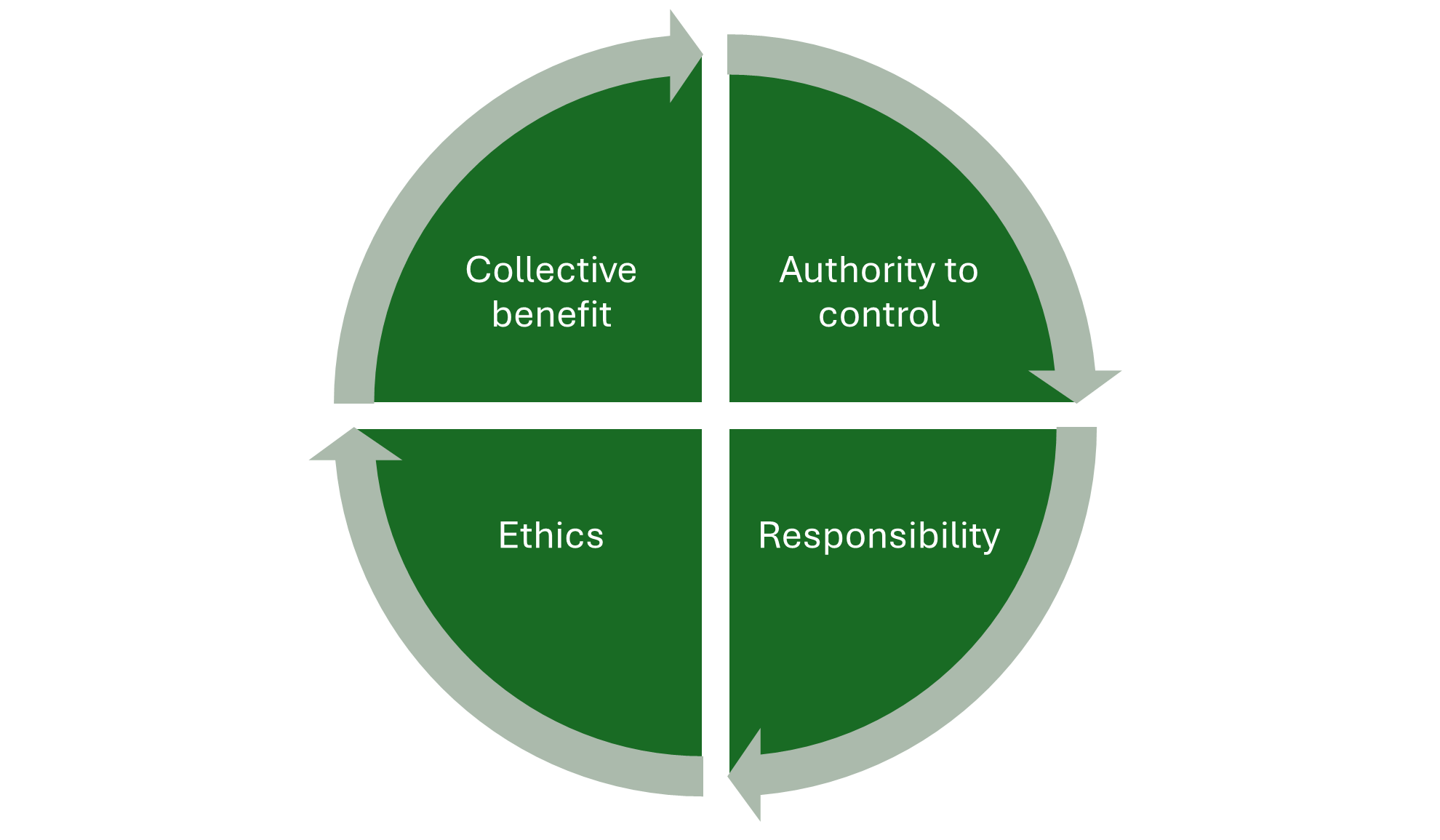Module 1: Ethical and Legal Considerations
Urban Indigenous Governance Practices
Utility, Self-voicing, Access, and Inter-relationality (USAI) Research Framework

The Ontario Federation of Indigenous Friendship Centres developed the Utility, Self-voicing, Access, and Inter-relationality (USAI) Research Framework. The National Association of Friendship Centres’ Urban Aboriginal Knowledge Network uses both the OCAP® Principles and the USAI Research Framework to inform its guiding ethical principles. If you are working with an Indigenous Friendship Centre, we suggest connecting early about which ethical research principles they use.
Principle I: Utility
Research needs are based on community priorities.
- Research inquiry is practical, relevant, and directly benefits communities.
- Research findings are immediate resources that benefit communities and build local capacity.
- Generated knowledge must be useful and relevant to communities and people involved in research activities.
- Communities decide on nature of actions that follow research activities.
Principle II: Self-voicing
Research, knowledge, and practice are authored by communities that are fully recognized as knowledge creators and Knowledge Keepers.
- Knowledge production, authorship, and dissemination constitute a political process to decolonize Indigenous Knowledges and practices.
- All community voices frame research reality; all research activities are self-determined; all research findings are authored by communities.
- Research goes beyond “inclusion” and “engagement”; communities construct and author their Knowledge and define their own actions.
Principle III: Access
Research fully recognizes all local Knowledge, practice, and experience in all their cultural manifestations as accessible by all research authors and Knowledge Keepers.
- Local knowledge, lived experience, community narratives, personal stories, and spiritual expressions are reliable and valid forms of authored research, both as researched reality and methods to understand and relate to it.
- Research is part of everyday life; it is never static or finished; it speaks everybody’s language; it is situated in the present, supported by the past, and contemplates the future.
- No mediators or cultural translators are needed to interpret or validate local knowledge, actions, and reflections.
Principle IV: Inter-relationality
Research is historically situated, geopolitically positioned, relational, and explicit about the perspective from which knowledge is generated.
- Research takes place within the complex web of interconnected relationships and encompasses all stages of life.
- All knowledge and all practice are situated within all relations; there is no objective knowledge or neutral praxis.
- There is always an historical context to Indigenous knowledge and praxis, which are inseparably linked to Indigenous identity and all its interrelated socio-political expressions.
Learner notes
CARE Principles for Indigenous Data Governance

The CARE Principles for Indigenous Data Governance reflect the role of data in advancing Indigenous innovation and self-determination. CARE stands for Collective Benefit, Authority to Control, Responsibility, and Ethics. These principles can be defined as:
- Collective benefit: How and what data is being collected is designed to directly benefit Indigenous Peoples.
- Authority to control: Indigenous Peoples must have the authority and ability to control and govern their data.
- Responsibility: People working with Indigenous data have a responsibility to be transparent in how their use of the data will support Indigenous self-determination and collective benefit.
- Ethics: Throughout the whole process, Indigenous rights and well-being are centred, and people work to minimize harm and maximize the benefits.
The Global Indigenous Data Alliance page on the CARE Principles has more information.
Collective Benefit
Data ecosystems shall be designed and function in ways that enable Indigenous Peoples to derive benefit from the data.
Meaning: Indigenous Peoples should benefit from the data and the research that aligns with the needs, wants, and goals of the specific community.
Authority to Control
Indigenous Peoples have the right and authority to control their data.
Meaning: Indigenous Peoples have authority to make decisions regarding data governance and how they want to be represented in the data. Indigenous data must be accessible to Indigenous communities.
Responsibility
Researchers working with Indigenous Peoples have a responsibility to support Indigenous Peoples rights.
Meaning: Researchers are accountable to Indigenous communities and must be able to demonstrate how their use of Indigenous data benefits the Indigenous Peoples and their self-determination. Evidence of benefits must be shared and resources must be grounded in Indigenous language and worldviews.
Ethics
Indigenous Peoples’ rights and well-being should be the primary concern at all stages of the data life cycle and across the data ecosystem.
Meaning: Indigenous rights and well-being are central during all stages of the data life cycle. Risk assessments must be considered from an Indigenous perspective.
Attributions
- “USAI framework” diagram by Connie Strayer and Robyn Grebliunas is licensed under a CC BY 4.0 license.
- “CARE principles” diagram by Connie Strayer and Robyn Grebliunas is licensed under a CC BY 4.0 license.

